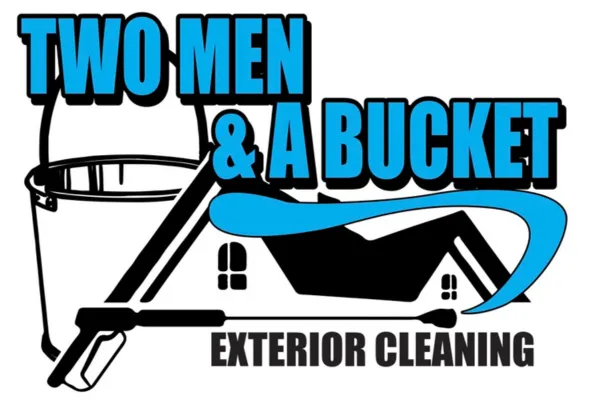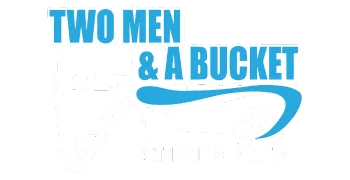Have Questions?
Checkout our blog you'll probably find the answer...

What Are Some Common Myths About Exterior Cleaning That Homeowners Should Be Aware Of?

Two Men and A Bucket's Website
PHONE: 314-761-9049
EMAIL: twomenexteriors@gmail.com
More On Pressure Washing Here!
Learn more about how exterior cleaning can help keep pests away here!
What Are Some Common Myths About Exterior Cleaning That Homeowners Should Be Aware Of?
When it comes to maintaining the exterior of your home, many homeowners fall prey to common myths that can lead to poor cleaning practices or even damage to their property. Understanding the truth behind these misconceptions is crucial for ensuring your home stays clean, safe, and in great condition. In this post, we'll debunk some of the most prevalent myths surrounding exterior cleaning, particularly pressure washing, and provide you with valuable insights that can save you time, money, and hassle.
Myth 1: Pressure Washing is Only for Large Jobs
Many homeowners believe that pressure washing is necessary only for large commercial projects or severe dirt buildup. However, this myth couldn't be further from the truth. Pressure washing is incredibly versatile and can be effectively used for various tasks, regardless of size.
The Real Truth:
Pressure washing is beneficial for both small and large jobs. Whether you need to clean your patio, driveway, outdoor furniture, or even the exterior of your home, pressure washing can make these tasks quicker and more efficient. Regular cleaning of smaller surfaces prevents dirt and grime from accumulating and can significantly enhance your property's curb appeal.
Expert Insight:
From my experience, I’ve seen numerous homeowners hesitate to pressure wash their homes because they think it’s only necessary for extensive cleanings. However, I always encourage routine maintenance, as it helps keep surfaces looking fresh and extends their lifespan. For example, cleaning a small deck or patio regularly prevents the buildup of mold and mildew, which can cause long-term damage if left untreated.
Myth 2: Pressure Washing Will Remove All Stains
Homeowners often assume that pressure washing can effectively eliminate any stain, regardless of its type or severity. While pressure washing is powerful, it doesn’t magically remove every mark.
The Real Truth:
Certain stains, such as oil or rust, may require specific cleaning agents or techniques to be fully removed. Pressure washing is most effective against organic stains like dirt, mildew, and algae, but tougher stains may need additional treatment. Furthermore, improper pressure washing can damage delicate surfaces, so it’s often better to opt for soft washing in those cases.
Expert Insight:
In my experience, while pressure washing is excellent for general cleaning, I recommend assessing the type of stains present. For example, oil stains on driveways might need a degreaser before pressure washing for effective removal. Additionally, delicate surfaces like wood or painted areas can be damaged by high pressure, making soft washing the safer choice. Understanding the limitations of pressure washing will lead to better results and satisfaction.
Myth 3: You Can't Wash in the Rain
Many homeowners believe that rain can interfere with pressure washing, leading them to postpone cleaning tasks when the forecast calls for showers.
The Real Truth:
You can effectively pressure wash in light rain, as the moisture can help loosen dirt and debris. However, heavy rain can cause operational issues and affect the drying time of surfaces.
Expert Insight:
I’ve conducted many jobs in light rain, and surprisingly, they often yield great results. The key is to monitor the weather conditions closely and ensure that the equipment and cleaning solutions are safe to use in wet conditions. Just remember to avoid washing during a downpour or thunderstorms for safety reasons.
Myth 4: DIY Pressure Washing is Just as Effective as Hiring Professionals
Many homeowners opt for DIY pressure washing to save money, thinking they can achieve the same results as a professional service. However, this approach can lead to subpar outcomes and potential hazards.
The Real Truth:
Without proper training and experience, DIY pressure washing can result in inconsistent cleaning and even damage to surfaces. Professionals not only have access to superior equipment but also possess the skills necessary to achieve a high-quality clean efficiently.
Expert Insight:
I often hear from clients who attempted to clean their driveways or siding themselves, only to find that the results were unsatisfactory. In some cases, they ended up causing damage that required costly repairs. Hiring professionals can prevent these pitfalls and ensure your home’s exterior is cleaned thoroughly and safely.
Myth 5: Homeowners Must Be at Home During the Cleaning
Another misconception is that homeowners need to be present while exterior cleaning services are performed, which can be a significant inconvenience.
The Real Truth:
While communication with the cleaning team is essential, it’s not always necessary for homeowners to be on-site. Many professional services operate efficiently and can follow pre-arranged guidelines and instructions.
Expert Insight:
I often work with clients who trust my team to handle the cleaning while they are away. We provide updates and photographs of the work completed, ensuring peace of mind. However, having a brief consultation before the job helps set clear expectations for both parties.
Myth 6: Bleach is Always Harmful to Surfaces
There’s a prevalent belief that using bleach for cleaning exteriors will cause more harm than good, leading many homeowners to avoid it entirely. While bleach can be harsh, when used correctly, it can be an effective cleaning agent.
The Real Truth:
When applied carefully and in the right dilution, bleach can safely eliminate mold, mildew, and algae from surfaces. Many professional cleaning services use a combination of bleach and pressure washing techniques to achieve optimal results without damaging surfaces.
Expert Insight:
In my professional practice, I often use a diluted bleach solution to tackle stubborn mold growth on surfaces like roofs and siding. It’s crucial to apply it in the right concentration and to rinse it off properly to prevent any damage to nearby plants and landscaping. This method not only cleans effectively but also prevents future growth.
Myth 7: All Pressure Washers Are the Same
Some homeowners believe that all pressure washers deliver the same level of cleaning power, which can lead to disappointing results when they try to tackle tougher jobs.
The Real Truth:
Pressure washers vary significantly in terms of PSI (pounds per square inch) and GPM (gallons per minute). PSI measures the pressure of the water coming out of the machine, while GPM indicates the volume of water used. Higher PSI can remove tougher stains, but excessive pressure can also damage delicate surfaces. A higher GPM can clean faster, but the best results often come from a combination of both.
Expert Insight:
As someone who frequently utilizes various types of pressure washers, I've learned that understanding the differences is crucial. For instance, a residential-grade pressure washer with 1,500 PSI is suitable for lighter jobs like cleaning patios, while commercial machines with 3,000 PSI or more are better for tougher tasks. Choosing the right equipment ensures effective cleaning without damaging your surfaces.
Myth 8: Pressure Washing Can Be Done on All Surfaces
Homeowners sometimes think pressure washing is a one-size-fits-all solution that can be applied to any exterior surface, including roofs, windows, and wood.
The Real Truth:
Not all surfaces are suitable for pressure washing. Delicate materials like roofs may require soft washing instead, while windows can be easily damaged by high-pressure water.
Expert Insight:
I advise homeowners to assess the materials they plan to clean. For instance, while concrete and brick can typically withstand pressure washing, soft materials like shingles or painted surfaces need careful treatment. Choosing the right method for each surface ensures effective cleaning without damage.
Conclusion
Understanding the truth behind common exterior cleaning myths is vital for maintaining the integrity and appearance of your home. By debunking these misconceptions, you can make informed decisions about your cleaning practices and potentially save time, money, and effort in the process. Whether you choose to hire a professional service or tackle some tasks yourself, knowing the facts will help ensure that your home's exterior remains in top condition.
If you have any questions about your home’s exterior cleaning needs, don’t hesitate to reach out for expert advice. Together, we can keep your property looking its best!
Frequently Asked Questions
Answers To Common Questions
How often should I have my exterior cleaned?
The frequency of exterior cleaning depends on factors such as the climate, level of pollution, and type of surfaces. Typically, it's recommended to have your exterior cleaned annually or bi-annually to maintain its appearance and prevent damage.
What are the benefits of exterior cleaning for my property?
Exterior cleaning not only improves the appearance of your property but also helps prevent deterioration caused by dirt, mold, mildew, and pollutants. It can extend the lifespan of your exterior surfaces and increase the overall value of your property.
Is exterior cleaning safe for my plants and landscaping?
Our exterior cleaning services use eco-friendly and biodegradable cleaning solutions that are safe for plants and landscaping. Additionally, precautions are taken to protect delicate vegetation during the cleaning process.
What are the different methods used for exterior cleaning?
Common methods for exterior cleaning include pressure washing, soft washing, hand washing, and chemical washing. The method used depends on the type of surface being cleaned and the level of dirt or stains present.
How much does exterior cleaning typically cost?
The cost of exterior cleaning varies depending on factors such as the size of the property, the type of surfaces being cleaned, and the level of cleaning required. It's best to request a quote from our website to learn more!
Why should we have our property cleaned?
Just like having your teeth cleaned, it helps prevent bigger, more expensive problems in the future, while making everything look nicer today.
